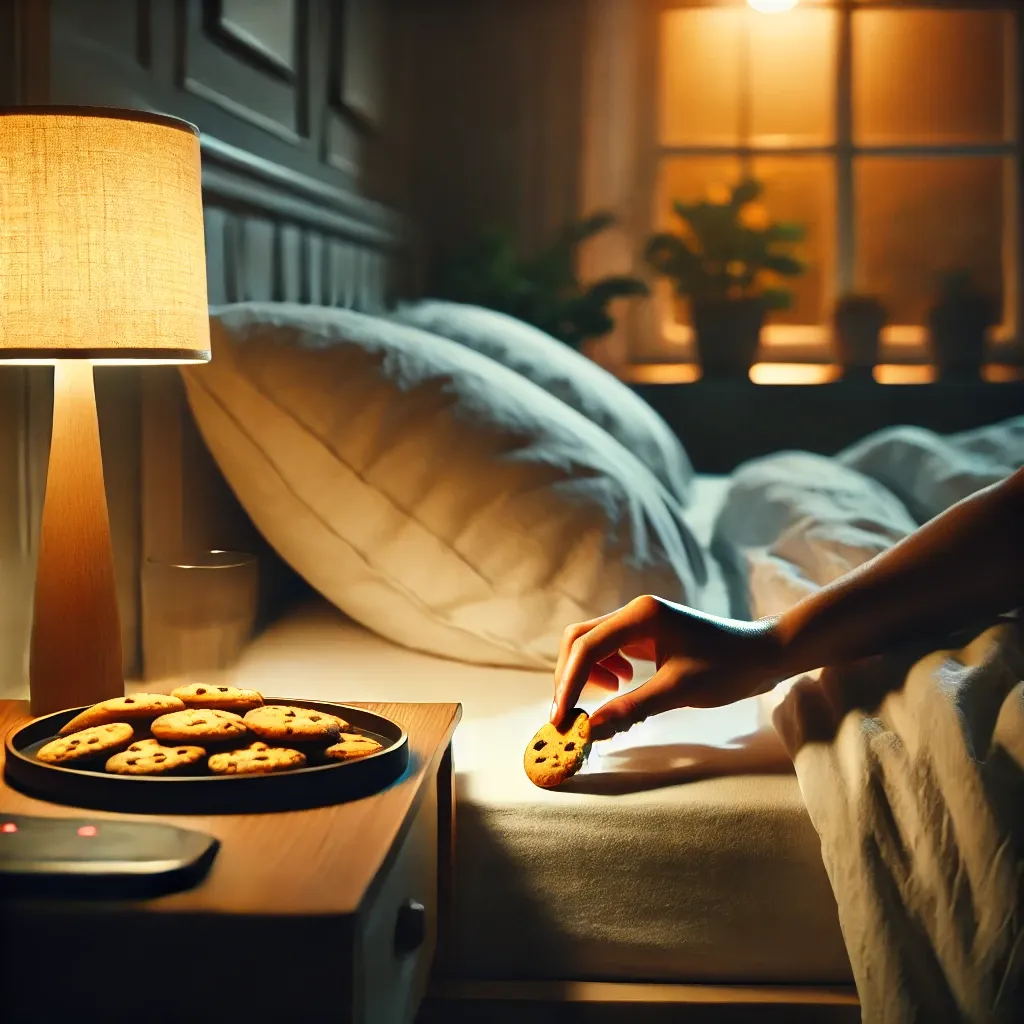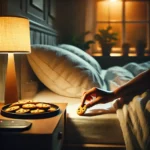Do you often find yourself reaching for snacks late at night? Struggling with night snack syndrome can affect your health and sleep patterns. Learn effective treatments, understand the causes, and discover strategies to overcome this habit.
Night snack syndrome, a condition where individuals crave and consume food late at night, can disrupt sleep patterns and lead to unhealthy habits. Many people experience these cravings, which can sometimes feel uncontrollable. Understanding the underlying causes, recognizing the symptoms, and applying effective treatments are crucial steps toward managing this condition. Let’s dive into the self-diagnosis, treatment options, and strategies for overcoming night snack syndrome.
Self-Diagnosis of Night Snack Syndrome
Self-diagnosis is often the first step toward recognizing night snack syndrome. Individuals who struggle with this condition may experience cravings for foods late at night, especially sugary or fatty snacks, even when they aren’t physically hungry. The habit may develop over time and could potentially worsen if left untreated. The first thing to understand is whether you’re dealing with a true syndrome or just occasional nighttime indulgences.
Here are some common signs of night snack syndrome:
-
Frequent late-night snacking Regularly eating snacks after dinner, especially in the late evening.
-
Cravings for specific foods Desiring unhealthy foods like chips, cookies, or sugary treats.
-
Loss of control Feeling unable to stop eating once you begin snacking at night.
-
Disrupted sleep patterns Having trouble falling asleep or waking up in the middle of the night after eating.
-
Guilt or regret Feeling guilty about eating at night but continuing the behavior.
It’s essential to track your eating habits to determine if the nighttime cravings are becoming a consistent pattern. If you notice these signs in your behavior, it may be time to address the issue seriously. By recognizing the symptoms, you can begin to explore possible causes and treatment options.
👉 Learn more about self-diagnosis of night snack syndrome 👈
Night Snack Syndrome Treatment
Treatment for night snack syndrome often requires a multi-faceted approach. By addressing both the psychological and physiological factors behind the cravings, individuals can regain control over their late-night eating habits. Here are some practical treatments:
1. Cognitive Behavioral Therapy (CBT)
Cognitive Behavioral Therapy can help individuals identify the triggers for their night-time snacking and change their thinking patterns. By working with a therapist, you can learn to replace unhealthy behaviors with healthier coping mechanisms.
2. Dietary Adjustments
Incorporating more balanced meals throughout the day can reduce the urge for midnight snacks. A well-balanced diet that includes sufficient protein and fiber can keep you full for longer, preventing late-night cravings.
3. Improved Sleep Hygiene
Often, night snack syndrome is linked to poor sleep quality. Establishing a consistent bedtime routine, reducing screen time before bed, and creating a comfortable sleeping environment can help minimize the need for snacking at night.
4. Mindfulness and Meditation
Mindfulness techniques can reduce stress and emotional eating, two common contributors to night snack syndrome. Practicing meditation or mindfulness exercises before bed can help you control cravings and sleep better.
5. Exercise and Physical Activity
Regular physical activity during the day can help regulate your appetite and reduce the urge to snack at night. Exercise promotes healthy metabolism and can improve overall sleep quality.
By applying these treatments, many individuals find they can significantly reduce their night-time snacking. However, it’s important to remember that change takes time, and consistency is key to success.
👉 Learn more about treatment options for night snack syndrome 👈
Overcoming Night Snack Syndrome
Overcoming night snack syndrome involves understanding the deeper causes behind your cravings and finding effective solutions that work for you. Several factors contribute to this syndrome, including emotional triggers, stress, and even genetics. Here’s how you can take proactive steps to overcome it:
1. Identify Emotional Triggers
Many individuals turn to food as a source of comfort during stressful or emotional situations. Identifying these emotional triggers and addressing them through healthier coping mechanisms can reduce the desire to snack late at night.
2. Create a Nighttime Ritual
Instead of eating, consider establishing a relaxing bedtime ritual. This could involve reading, journaling, or engaging in light stretches to help you unwind without relying on food.
3. Hydration
Sometimes, thirst is mistaken for hunger. Ensure you’re properly hydrated throughout the day, and if you feel cravings at night, try drinking a glass of water before reaching for a snack.
4. Establish a Routine
Consistency in your daily schedule, including meals and sleep, can help regulate your body’s natural rhythms. Eating at regular intervals throughout the day can prevent hunger pangs from creeping in at night.
5. Seek Professional Help
In some cases, night snack syndrome may be linked to underlying medical or psychological issues, such as insomnia or anxiety. Seeking professional help from a nutritionist, therapist, or doctor can provide personalized solutions.
Taking small but consistent steps toward healthier habits can greatly improve your ability to overcome night snack syndrome. In time, you may find yourself no longer compelled to snack late at night, leading to better sleep and overall health.
👉 Explore more ways to overcome night snack syndrome 👈
Conclusion
Night snack syndrome may seem like a harmless habit at first, but it can have significant impacts on your health and well-being. By understanding the causes and recognizing the symptoms, you can take proactive steps toward treatment. From dietary changes and therapy to mindfulness and sleep improvements, overcoming this condition is entirely possible. By incorporating these strategies into your daily routine, you can regain control and achieve a healthier lifestyle.
As the famous quote by Dr. William Osler goes, “The greatest medicine of all is teaching people how not to need it.” Through self-awareness and small changes, you can treat night snack syndrome and improve your overall health.






